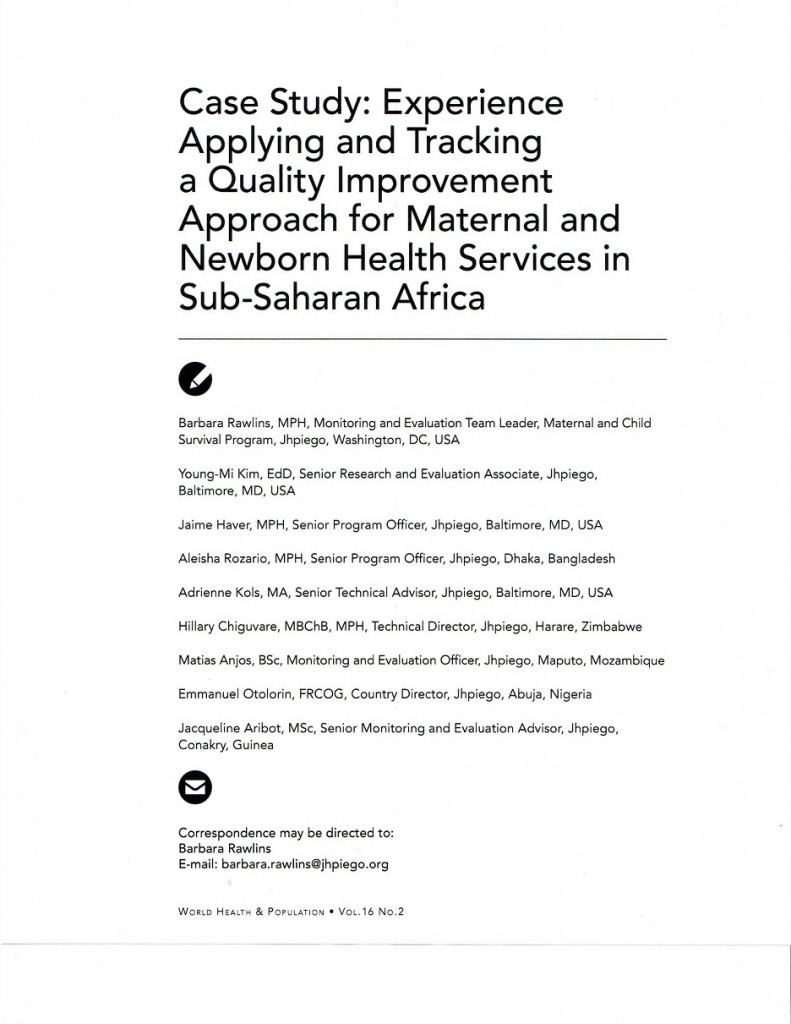
The Standards-Based Management and Recognition (SBM-R®) approach to quality improvement was applied to maternal and newborn health services in Guinea, Mozambique, Nigeria and Zimbabwe. In every country, the quality of service delivery, as measured by clinical performance standards, improved following the intervention. The performance of evidence-based service delivery practices, as measured through service statistics, also […]
Read More…
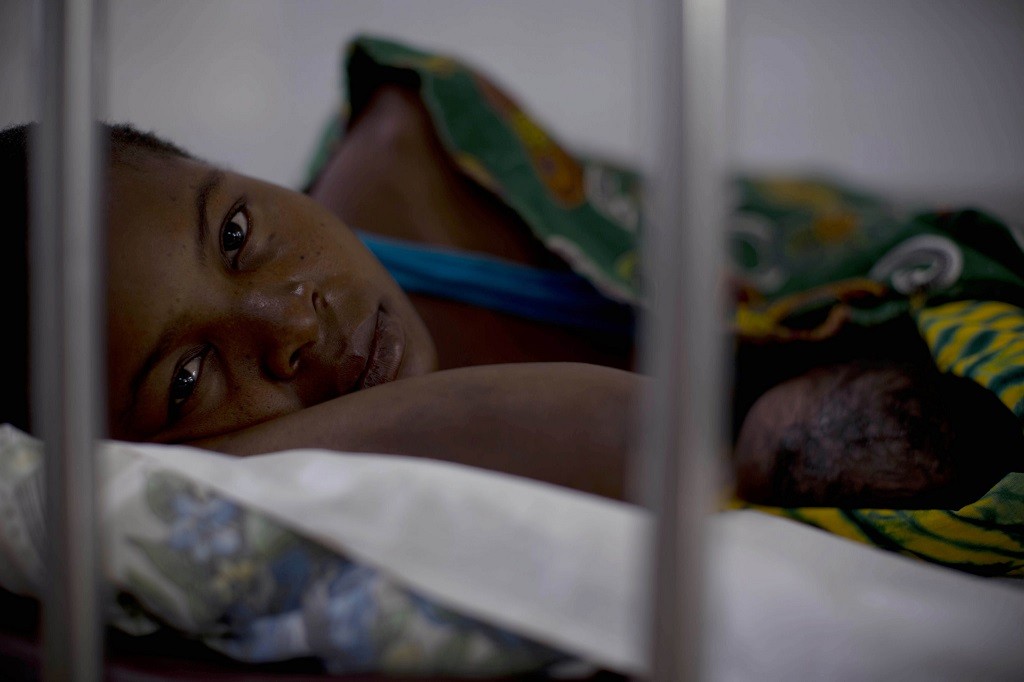
With support from MCHIP and MCSP, more than 10,000 women have given birth safely at Matola II Health Center since April 2011. […]
Read More…
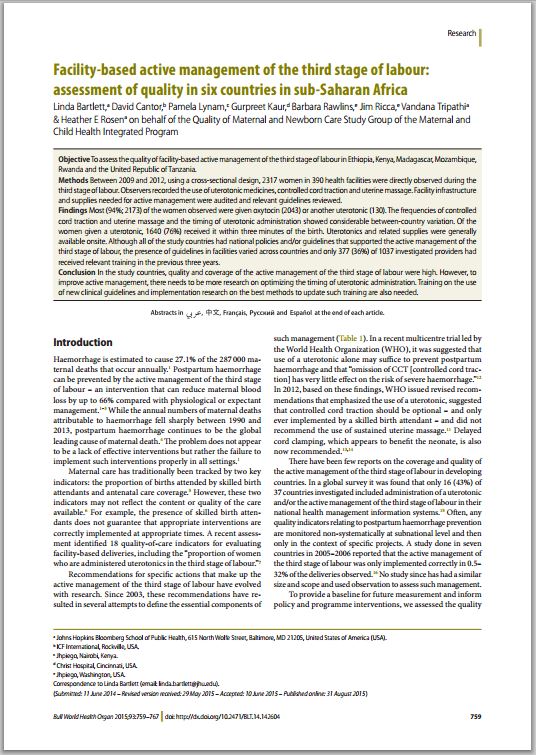
This MCSP co-authored World Health Organization bulletin assesses the quality of facility-based active management of the third stage of labor (AMTSL) in Ethiopia, Kenya, Madagascar, Mozambique, Rwanda and Tanzania. The authors found the quality and coverage of AMTSL were high. However, to improve active management, there needs to be more research on optimizing the timing of uterotonic administration. […]
Read More…
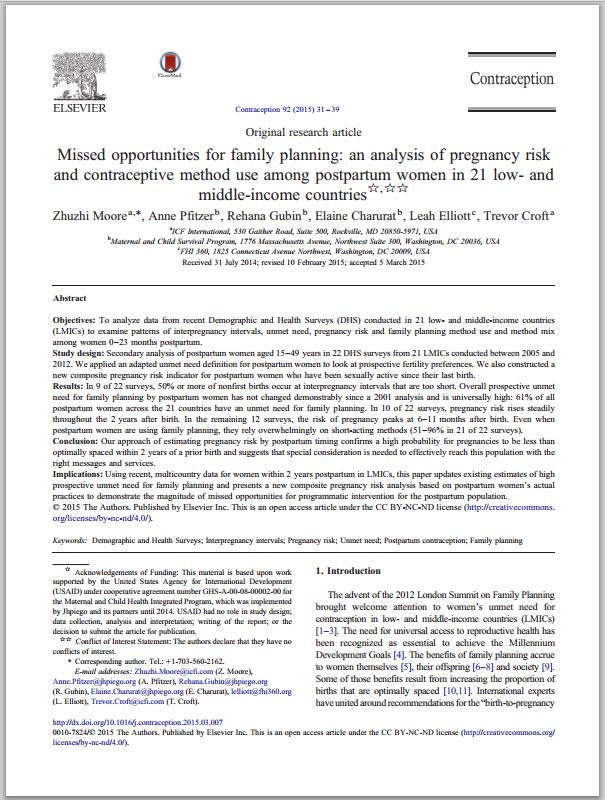
This open access, MCSP co-authored article in the journal Contraception analyzes data from recent Demographic and Health Surveys conducted in 21 low- and middle-income countries to examine patterns of interpregnancy intervals, unmet need, pregnancy risk, and family planning method use and method mix among women 0–23 months postpartum. The countries reviewed were: Bangladesh, Burkina Faso, […]
Read More…

This open access article, co-authored by MCSP staff and published in the journal BMC Health Services Research, highlights efforts to develop a methodology for estimating national coverage for uterotonic use immediately following birth. The methodology was then piloted in four countries: India (Jharkhand), Mozambique, Tanzania and Yemen. […]
Read More…
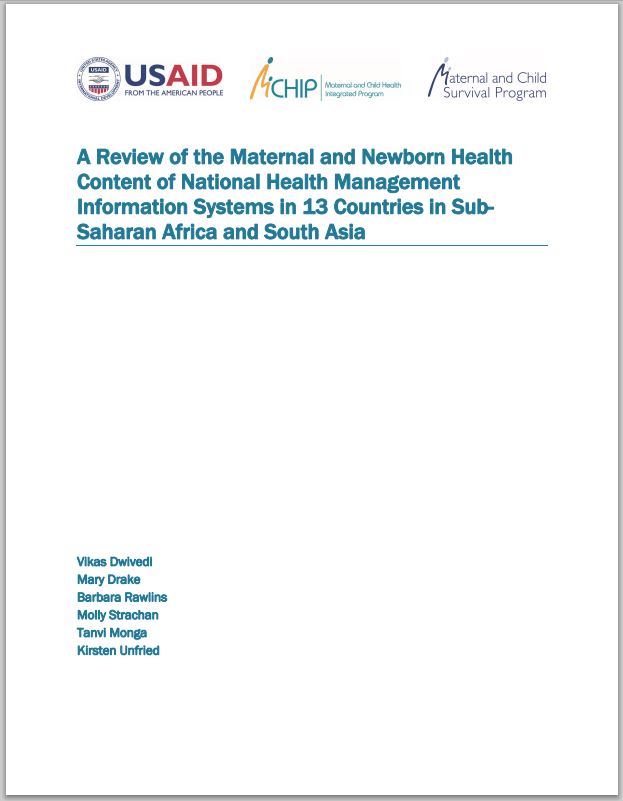
This report summarizes the results and recommendations from a review of health management information system data collection forms and reporting formats in 13 MCHIP countries: Bangladesh, Ethiopia, India, Kenya, Malawi, Mali, Mozambique, Nepal, Nigeria, Rwanda, Tanzania, Uganda and Zimbabwe. […]
Read More…
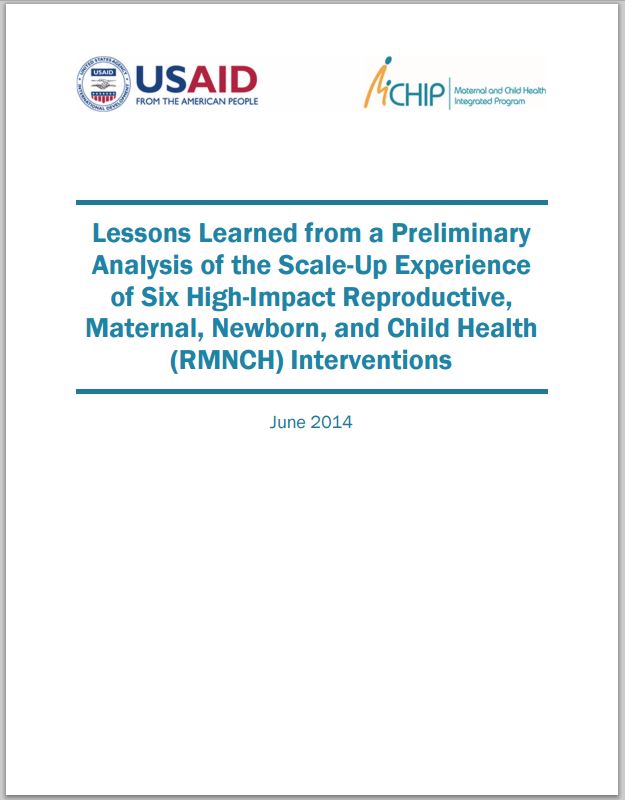
USAID’s predecessor flagship Maternal and Child Health Integrated Program (MCHIP) worked in more than 50 developing countries in Africa, Asia, Latin America, and the Caribbean to assist in the scale up of high impact interventions in reproductive, maternal, newborn, and child health (RMNCH). This brief summarizes the results of the Program’s scale up experience and […]
Read More…
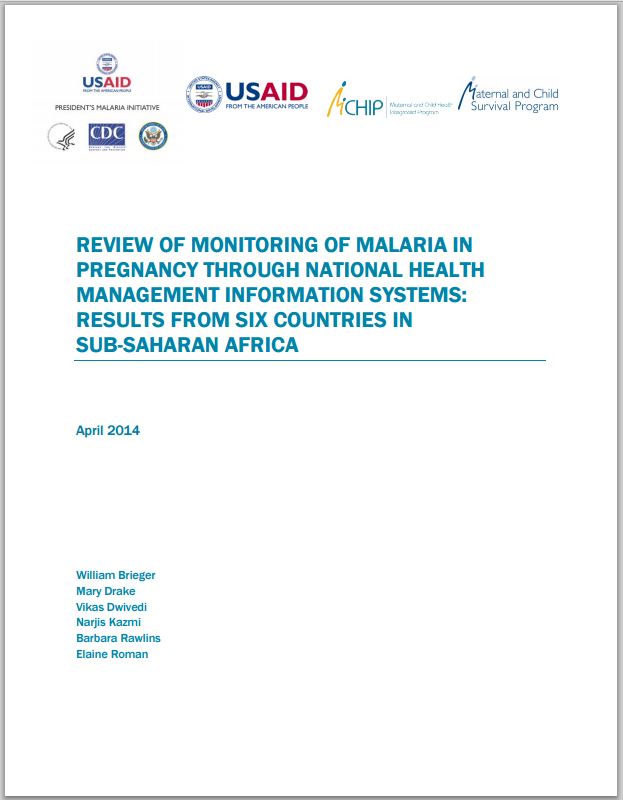
This report presents findings from a review of national Health Management Information Systems in six countries in Sub-Saharan Africa to improve understanding of how Ministries of Health—both National Malaria Control Programs and Reproductive Health Units—are monitoring and reporting their malaria in pregnancy related program results, and how the data are being used. President’s Malaria Initiative countries […]
Read More…
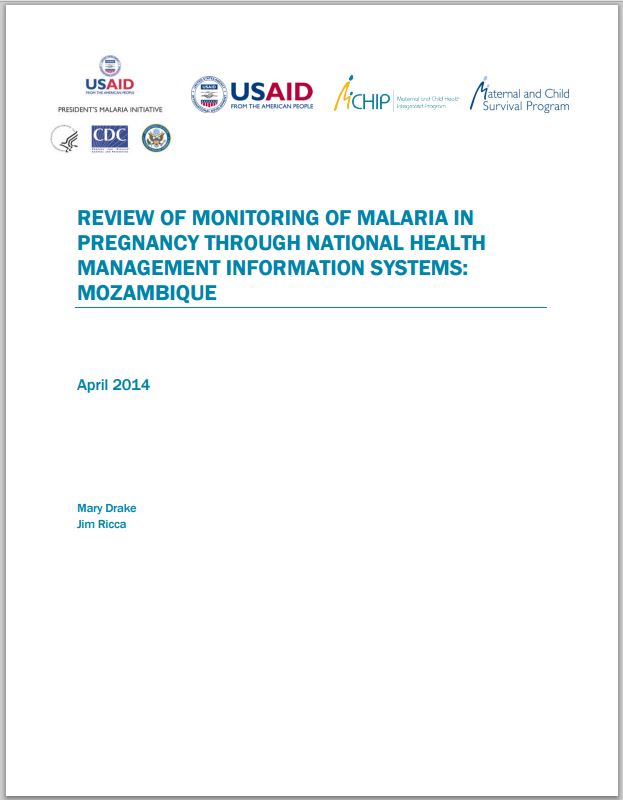
This report presents findings from a review of national Health Management Information Systems in Mozambique to improve understanding of how the Ministry of Health—both National Malaria Control Programs and Reproductive Health Units—is monitoring and reporting their malaria in pregnancy related program results, and how the data are being used. The report also includes recommendations on […]
Read More…









